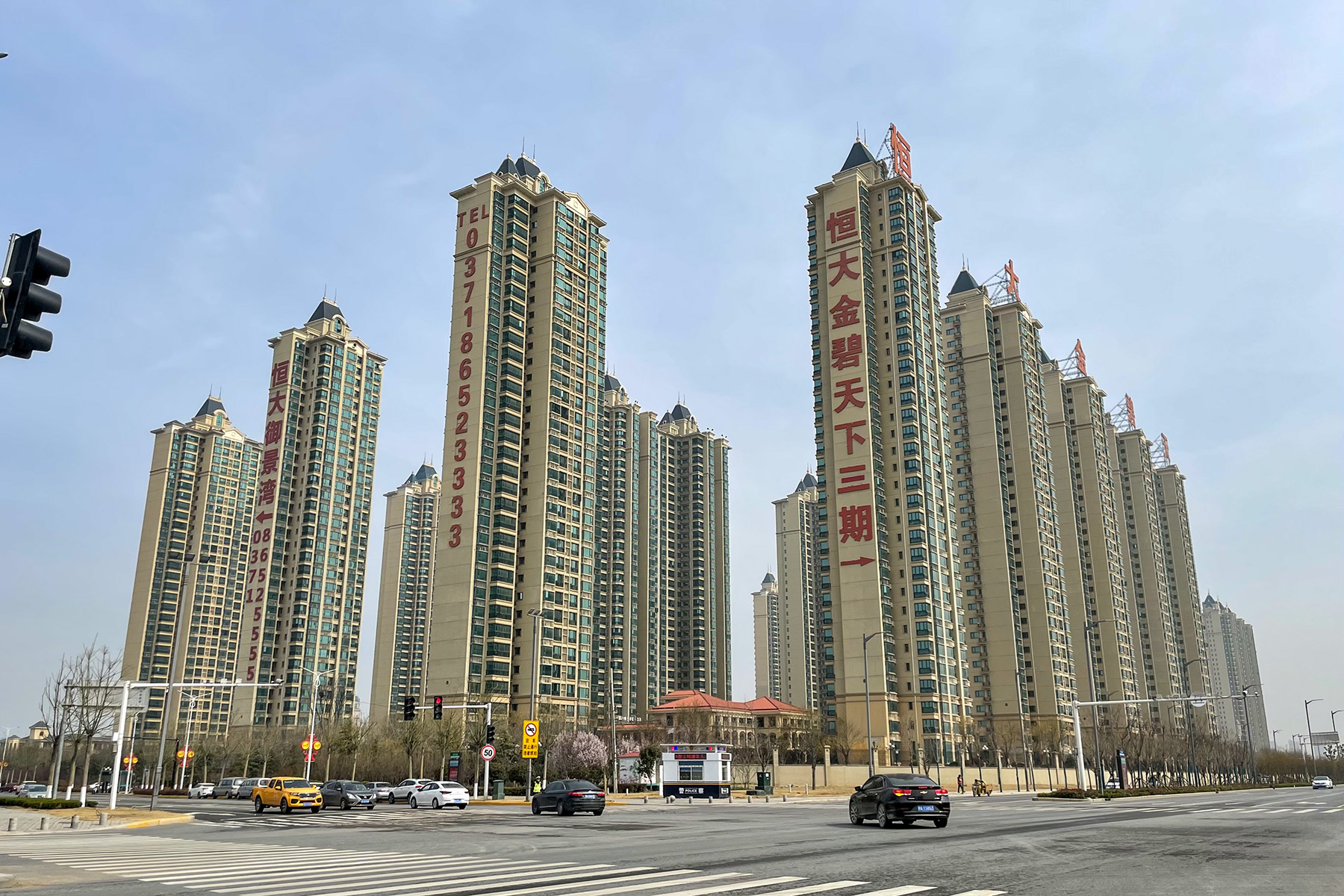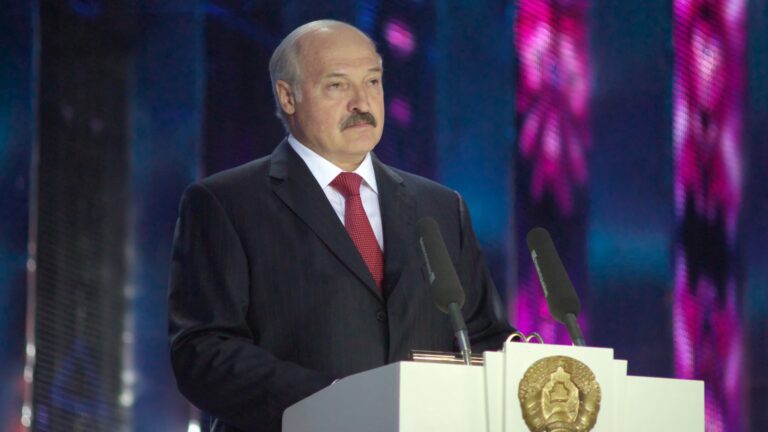
“We believe that Evergrande has misled investors and represents the worst of Chinese neo-capitalism, and therefore represents a good short opportunity in relation to other exposure in the Chinese capital markets,” Andrew Left wrote in his 2012 report on Evergrande. “Whether it be the capital markets, government enforcement, hard or soft landing, the endgame for Evergrande is a certainty; the only uncertainty is the timing.”
Left, the bombastic CEO of short-selling firm Citron Research, has not been shy about airing his grievances against some of the world’s largest companies. In the case of bets against firms like Valeant Pharmaceuticals, he has gained plaudits. In cases like Tesla and Shopify, ridicule.
Still, good or bad, Left has had the right to air his opinions freely. That is, except in the case of Evergrande, where about a decade ago he decried the Chinese real estate giant effectively insolvent. Instead of assessing his claims, Hong Kong regulators slapped him with a ban from trading that has kept him out of action in China since 2012. As such, Left was not able to capitalize on his call about Evergrande’s end-game.
However, there is an irony about the situation that Left illuminated so long ago. At the time of his report, Evergrande’s debt was estimated to be in the ballpark of $12 billion. At present, the firm’s liabilities have ballooned to over $300 billion. Due to inaction over the accusations leveled against Evergrande at the time of Left’s report, the issue evolved from a relatively minor bubble in the grand scheme of the Chinese real estate market, to a default with contagion risks not only in China, but across global markets.
The Path to Ponzi Finance?
In the post-Great Financial Crisis environment, no housing crisis can go without comparison to the housing bubble burst of 2008. In this context, many have analogized Evergrande as the Lehman Brothers of the current crisis.
In that event, current US Treasury Secretary and former Federal Reserve Chairwoman Janet Yellen noted the vindication of previously obscure economist Hyman Minsky and his financial instability hypothesis.
“One of the critical features of Minsky’s world view is that borrowers, lenders, and regulators are lulled into complacency as asset prices rise,” she explained in her speech to the San Francisco Federal Reserve in 2009.
Yellen explained, in brief, Minsky’s idea that as bull cycles extend, the behavior of financial actors tends to become increasingly speculative. In Minsky’s parlance, borrowers moved from the “hedge” end of the spectrum wherein they could repay both the loan principal and interest toward the “Ponzi” end wherein debts could only be repaid insofar as asset prices continued to rise ad infinitum.
One could certainly be forgiven for seeing corollaries to the current situation in Chinese real estate. As Left may argue, it is only the soaring asset prices that allowed zombie companies like Evergrande to persist as long as they did.
And soar asset prices did.
Per JP Morgan, the Chinese real estate market has grown over 400 percent since 2008, ballooning from about 5 percent of national GDP to about 18 percent. The report adds that China sports the five most expensive cities in the world on a price to income basis.
For context, a recent paper from Harvard economist Kenneth Rogoff and IMF economist Yuanchen Yang highlights the fact that housing prices in China’s Tier-1 cities have risen more than 600 percent since 2002, a rate nearly eight times as pronounced as the US housing price trend from 2000 to its 2005 peak.
The paper notes that consumer behavior in terms of leverage follows the same trend. From 2013 to 2018, real estate investment increased by 30 percent alongside a rise in the household leverage ratio from 33 percent to 60 percent. It is crucial to note that within this time frame, typically onerous down payment requirements were loosened, allowing homebuyers to take on more debt than in years prior.
As Minsky’s hypothesis would suggest, borrowers gorged on debt as housing prices continued to push upward and the bullish trend seemed indefinite. Of course, as the famous cases of Japan and the US before it indicate, the good times are not likely to last forever.
To be sure, while the logic of the real estate bubble is quite similar, the striking differences between China’s economy and Western economies like the US should not be underrated. For one, complex derivatives which Warren Buffett has called “weapons of financial mass destruction” are not widely employed in China, limiting the amplification of its issues.
Evergrande is also not a bank with significant ties into the plumbing of the overall financial system, making it markedly less systemically important to China than Lehman was to the US in 2008. Lastly, Evergrande’s bankruptcy is less than half the size of Lehman at its declaration of bankruptcy.
Gauging a Government Response
From a response standpoint, the authoritarian nature of the Chinese government offers it numerous more levers to pull rein in the potential impact of an impending crisis. This includes not only Beijing, but numerous local and provincial governments that are integrally involved in the overall real estate market.
At the close of September, Evergrande sold a 19.93 percent stake in its Shengjing Bank subsidiary to a Shenyang city government-backed asset manager for $1.5 billion. Meanwhile, government-connected billionaires appear eager to make patriotic purchases of Evergrande’s distressed assets. For example, local party liaison and Hopson Development Holdings chairman Chu Mang Yee paid $500 million for Evergrande’s property servicing business.
While these are paltry sums compared to the over $300 billion in outstanding liabilities, it is nonetheless indicative of the all-hands-on-deck mentality taken by all levels of government. The only issue at hand is the harsh stance Beijing has taken on issues of leverage and generally tightened regulations on the real estate sector, which may tie their hands slightly.
However, as Xi Jinping eyes another term in 2022, the government is likely to do anything it can to curb a potential catastrophe. As 1.4 million homebuilding projects now sit in limbo due to Evergrande’s insolvency and 70 percent of total Chinese wealth remains tied to real estate more broadly, lack of action to stem a meltdown would ensure widespread social unrest.
Contagion Concern
Still, there remain questions as to just how much can be done now that the problem is as prominent as it is and, crucially, how much is truly understood about the problem’s scope.
The Chinese financial system is infamously opaque. Even the scale of the issues at Evergrande were not fully illuminated until Beijing laid out regulatory ‘red lines’ on debt reduction earlier this year. As such there is a distinct possibility that Evergrande’s issues are broader than already understood. Evergrande’s protracted silence about a potential upcoming “major transaction” is likely exacerbating worries as well.
Per Morningstar research, even the largest foreign bondholder in the form of the London-based Ashmore Group holds only $146 million in Evergrande debt. Given the hundreds of billions in outstanding liabilities, the potential for global spillover from Evergrande alone seems limited.
Unfortunately for optimists, the contagion concern now bubbling up suggests it might not be Evergrande alone.
On October 5, Chinese luxury apartment developer Fantasia Holdings Group announced its failure to make a $206 million bond payment due the day prior. The firm, headed by the niece of former Chinese Vice President Zeng Qinghong, had not disclosed any significant stress prior to the missed payment. In fact, only days prior the firm had reassured investors about its financial position. It is not likely to be the last surprise either, as the entire sector now breeds anxiety for investors.
While many have argued against alarmism over Evergrande, the potential for broader defaults is a much more dire concern. as nearly $100 billion in bonds issued by Chinese developers are set to come due within the next year.
Further, China’s heavily indebted property developers are significant contributors to the overall Asian high-yield debt market that has grown by over $200 billion in less than a decade. If defaults begin to spread and impact the overall market across Asian junk debt, reassurances about ringfencing Evergrande will be moot. That is not even to mention the sizable expected impact on Chinese consumers.
As risks pile up, the question that comes to the fore is one of whether growing defaults can convince Beijing to back a bailout. Thus far, only local governments like Shenzhen have signaled any appetite for action. This also begs the questions of moral hazard and of just how many billions of dollars such a program will entail.
On the latter point, a pugnacious American shortseller with prescient insights on Evergrande could have led regulators to stem the problem early and save billions, both for bondholders and a potential bailout program. Unfortunately, it was the prophet who was punished.
Still, there is some poetic justice in the fact that just as his trading ban expires, so too does the firm that provoked his restrictions.
Written by
Kevin Curran
kevincurranczKevin Curran worked as a Project Assistant at the Association for International Affairs (AMO). Previously, he was a Fulbright Scholar at Charles University, a visiting fellow at the International Sustainable Finance Centre, and a journalist for major US financial publications. His research interests include semiconductors, Central European media systems, and international capital market regulation.


